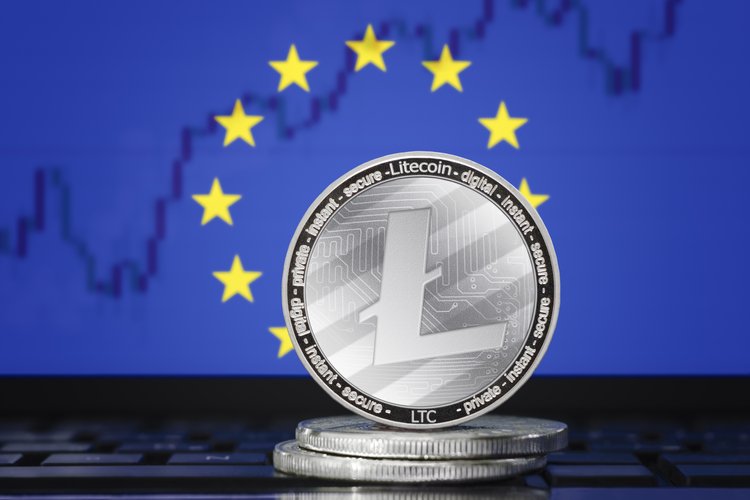The Hungarian company Ajax Software LLC announced the launch of a cryptocurrency specifically devoted to migration issues – the Citizenship coin or CTZ. According to the company, their ICO will feature three phases from October 2018 until December 2019 with approximately 50 million tokens for sale. All of the funds raised by the ICO will be forwarded to the deployment of a blockchain-based infrastructure focused on the simplification and acceleration of the application process for CBI (Citizenship by Investment) and RBI (Residency by Investment) programs throughout the world, specifically in the EU, including Portugal, Malta and Cyprus.
The total supply of Citizenship coins equals 105 million. About 50 million Citizenship coins can be minted in the first four years and the supply will decrease by 50% every four years. The value of Citizenship coins could go up depending on supply and demand in the market and the number of coins in circulation. For more information on Citizenship coins and other related topics see Ajax Software LLC’s recent white paper on the issue.
According to Ajax’s founders, the “Citizenship coin is currently an experimental digital currency based on blockchain technology set to revolutionize the entire investment migration industry, enabling instant payments to anyone, anywhere in the world.”
This new coin uses peer-to-peer blockchain technology to operate with no central authority: the managing of transactions and the issuing of money are carried out collectively by the network. The source code of the Citizenship coin has been derived from the Bitcoin-Litecoin equivalent.
The pre-ICO for the Citizenship coin starts in April 2018. During this phase, the company plans to sell one million coins and raise another ten million euro to implement, setup and acquire the necessary licenses for the company, network operations and software development for the coin. As part of the initial promotion of the Citizenship coin project, the company will give away free 100 Citizenship coins to anyone involved in the CBI industry on a first come, first serve basis. The free coins initiative will educate professionals in the industry about the working of cryptocurrency and blockchain technology.
In January 2018 the startup Selfkey implemented a blockchain-based operation to simplify the citizenship application process. More than $20 million was generated in just one day during its ICO. This project seeks to implement a decentralized net for personal identification and makes self-sovereign identity (SSID) much more convenient: users have an opportunity to manage, approve and receive personal information online. One migration intermediary, NTL Trust, already announced its future collaboration with Selfkey on applicant verification.
Selfkey was named one of the 5 Blockchain Projects That Are Increasing Our Freedom by Invest in Blockchain, a major web resource tracking cryptocurrency and blockchain trends.
“Since our private information is stored in huge centralized databases, security breaches are all too common,” according to the rating’s founders. “Surely you remember the Equifax hack last summer that resulted in the identities of 143 million people being stolen. Recognizing the importance of solving this problem, the team behind SelfKey decided to create a solution to decentralize the management of our private information using blockchain.”
Since SelfKey never stores your data, it’s impossible to lose it to hackers or sell to third parties.
Maxim Efremov, COO of the Independent Capital Blockchain Fund (ICBF), has doubts about the Citizenship coin’s future success based on Ajax Software LLC’s recent white paper, but names migration and personal identification issues as perspective fields for blockchain implementation.
“If blockchain can simplify bureaucratic issues, such startups could be very successful,” Efremov said. “As beneficiaries, deriving advantages from such services, we can see not only applicants, but also the potential of off-shore jurisdictions, such as the Pacific state of Vanuatu.”
In 2017 rumours circulated that Bitcoin (EXANTE: Bitcoin) could be as a legal form of payment for the purchase of citizenship in that island nation.
According to Leonid Delitsyn, an analyst at Finam, this innovative service could be of interest to wealthy crypto miners interested in obtaining a residence permit in the EU. According to him, Chinese crypto enthusiasts in particular would be happy to exchange tokens for a residence permit in Monaco or another European state.
“Usually in order to get legal status in a country one should invest capital into creating jobs or purchase property,” Delitsyn says. “Blockchain offers another opportunity to such potential investors.”
Specialized cryptocurrencies used for such purposes could serve as an additional payment tool, says Bogdan Zvarich, an analyst at Freedom Finance. According to him, investors prefer projects with the potential for global opportunities, although he does not see this offered by Citizenship coin. One apt comparison could be El Petro, a cryptocurrency issued by the Venezuelan government for payments made inside that country.
By Alex Lossan



